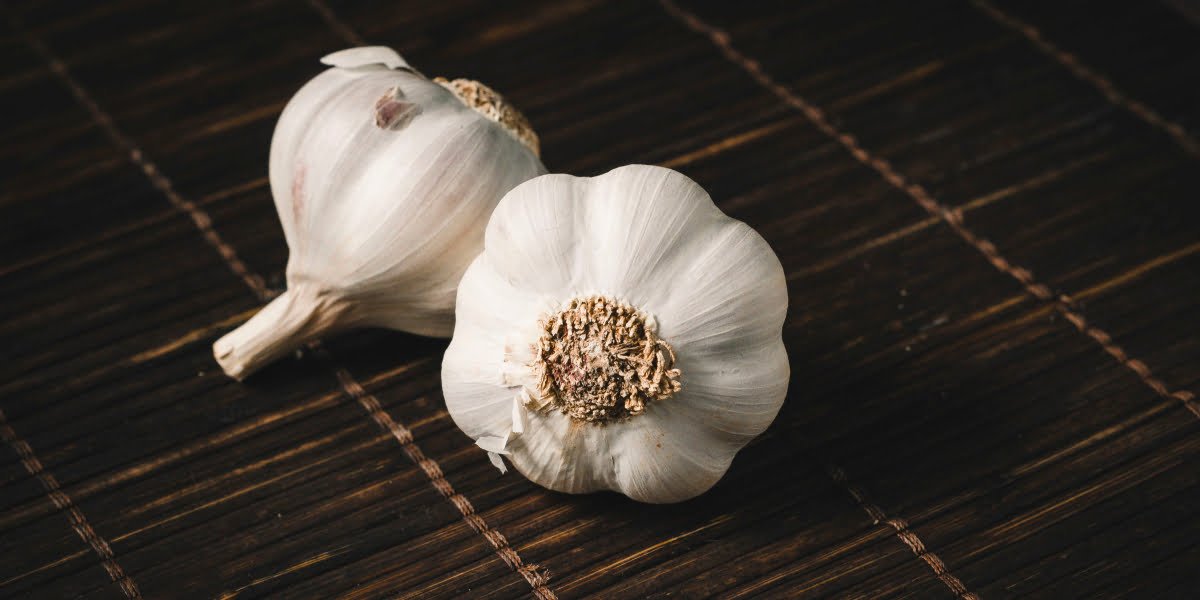The herb known today as garlic is native to central Asia, and it is one of the longest cultivated plants in the entire world. Garlic has been cultivated for over 5000 years, with the residents of ancient Egypt widely believed to be the first to cultivate this herb.
Indeed, garlic played an important role in Egyptian culture. Not only was garlic endowed by the ancient Egyptians with sacred qualities and placed in tombs with other prized possessions, but it was also provided to the slaves who built the pyramids as a way to increase their physical endurance and strength. This ability to increase physical strength was also valued by the Romans and the Greeks, and their athletes were known to consume garlic prior to sporting events, while their soldiers often consumed garlic before heading off to war.
Garlic was brought to various parts of the world through the influence of migrating tribes and various explorers. By the sixth century B.C. the herb known as garlic was well known in both China and India. Indian healers in particular used the herb for its therapeutic qualities.
Throughout many thousands of years, garlic has been used both for its medicinal and its culinary values. The past few decades in particular, though, have seen a resurgence in the popularity of garlic for therapeutic purposes.
In the world today, the leading producers of garlic are the United States, Spain, India, China and South Korea, but the herb is cultivated and used throughout the world.
Major benefits of garlic
For many years garlic has been regarded as an incredibly powerful food, and garlic may well be the original superfood. Many modern scientific studies have backed up the anecdotal evidence that garlic provides many important health benefits. It is thought that the same compounds which give garlic its strong aroma and rich flavor are able to protect against many common health conditions.
It is thought that garlic may provide important protection against some types of cancer. Garlic is thought to provide this effect through its ability to neutralize certain cancer causing compounds and slowing the growth of tumors.
For many years the world of traditional medicine has regarded garlic as a wonder drug, and garlic has been traditionally been used to treat conditions ranging from the common cold to the Bubonic plague. While it may not be a cure for the plague, garlic is known to have great healing powers. When choosing garlic for its healing power, the stronger the odor of the garlic clove, the greater its medicinal value will be. This is because the sulfur compounds which give garlic its strong odor and rich flavor are the same ones responsible for its healing power.

Additional information:
Many feel that organically grown garlic provides a higher sulfur content, and therefore a greater healing power, than non-organic varieties. In addition, others who want to reap the many health benefits of garlic without the unpleasant odor can turn to garlic capsules, tablets and other supplements.
Garlic, whether eaten as part of a healthy diet or as a supplement, has been shown to provide many strong health benefits. Garlic may provide antibiotic properties, and it has even shown usefulness as a mosquito repellent.
When adding raw garlic to the diet, it is important not to take too much too soon. Excessive consumption of garlic can produce unpleasant side effects such as irritation and damage to the digestive system. In addition, there are those who suffer allergies to garlic. While those allergies are rare, those who suffer garlic allergies may experience such symptoms as fever, headache and skin rashes.
It is also important to know that garlic acts as a blood thinner, so those scheduled for surgery should avoid garlic prior to any scheduled surgery. It is also important to keep your physician informed of all medications you are taking, including over the counter medications and supplements.
For superior flavor and nutrition, nothing can beat the power of fresh garlic. While garlic powders, garlic flakes and garlic paste may be more convenient, they are not as flavorful or as nutritious as fresh garlic.
When choosing fresh garlic it is important to choose cloves which are plump and on which the outside skin has not been broken. Garlic can be selected by gently squeezing the bulb between the fingers. The best garlic will feel firm to the touch and not be damp.
Garlic cloves which are shriveled, too soft or moldy are best left in the grocery store. The same goes for garlic cloves that have begun to sprout. All these things can be signs of decay, and this will cause the garlic to be of inferior flavor. Size is not generally an indication of quality with garlic, so it is best to choose the size clove according to how much your recipe calls for. Fortunately fresh garlic cloves are available in grocery stores and supermarkets all year round, so finding fresh garlic should not be much of a challenge.
Fresh garlic can be stored either loosely covered or uncovered in a cool dark place. It is important to keep the fresh garlic away from sunlight and other heat sources, as this will help to maintain its freshness. Garlic does not need to be refrigerated, and while it can be frozen, doing so will reduce the richness of its flavor and change its texture as well.
Originally posted 2019-10-05 10:31:12.


